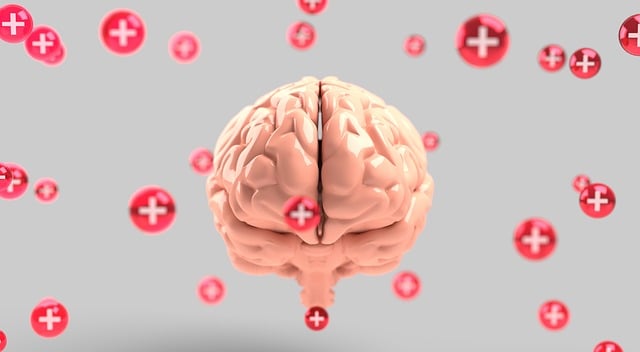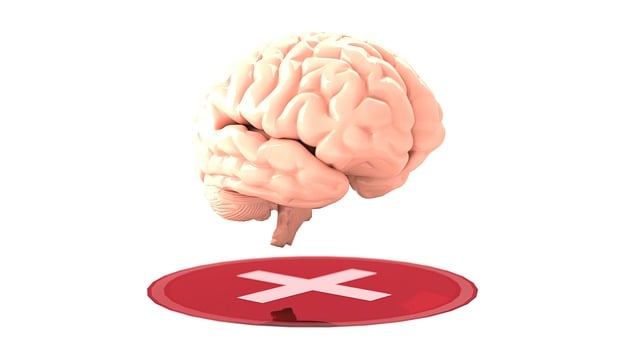Crisis Intervention Teams (CITs) are essential resources for communities like Lafayette with a significant Spanish-speaking population, offering culturally sensitive support and de-escalation services. Lafayette Spanish Speaking Therapy provides specialized CIT training focused on communication skills for effective crisis management in diverse cultural contexts. Their programs blend theoretical knowledge, interactive workshops, role-playing, and discussions to empower participants to build trust, reduce stigma, and facilitate connections to long-term treatment options. Through these initiatives, Lafayette Spanish Speaking Therapy has achieved remarkable outcomes, including reduced hospitalization rates and improved community satisfaction among minority groups facing language barriers.
Crisis intervention teams play a vital role in managing psychological emergencies, offering immediate support and preventing escalations. This article explores the importance of these teams and delves into effective training programs, highlighting key components and best practices for designing comprehensive courses. We present a case study of Lafayette Spanish Speaking Therapy, showcasing how cultural sensitivity enhances crisis response. Real-world success stories from various intervention programs further emphasize the impact of well-trained professionals in saving lives.
- Understanding Crisis Intervention Teams: Their Role and Importance
- Lafayette Spanish Speaking Therapy: A Cultural Sensitivity Approach
- Essential Components of Effective Crisis Intervention Training
- Designing a Comprehensive Program: Steps and Best Practices
- Real-World Applications: Success Stories from Crisis Intervention Programs
Understanding Crisis Intervention Teams: Their Role and Importance

Crisis Intervention Teams (CITs) play a pivotal role in managing and de-escalating acute psychological crises. These specialized teams, often comprised of trained professionals from various disciplines, are designed to provide immediate support to individuals experiencing severe emotional distress or mental health emergencies. In many communities, including Lafayette areas with a significant Spanish-speaking population, CITs offer crucial services tailored to address cultural nuances and language barriers.
The role of CITs goes beyond providing direct care; they also aim to reduce the stigma associated with mental illness, promoting early intervention, and fostering better community support for individuals facing trauma or crisis. By offering Crisis Intervention Guidance and Trauma Support Services, these teams help prevent escalating situations, enhance safety, and connect people with appropriate long-term treatment options. This proactive approach not only benefits those in immediate need but also contributes to broader Mental Illness Stigma Reduction Efforts.
Lafayette Spanish Speaking Therapy: A Cultural Sensitivity Approach

Lafayette Spanish Speaking Therapy offers a unique approach to crisis intervention training, emphasizing cultural sensitivity. This program is designed to equip individuals with the skills needed to effectively support and communicate with Spanish-speaking communities during times of crisis. By focusing on cultural understanding, participants learn to navigate the complexities of language barriers and build trust within diverse populations.
The therapy involves interactive workshops, role-playing scenarios, and discussions centered around anxiety relief and confidence boosting techniques tailored for culturally sensitive contexts. This approach ensures that emergency responders, healthcare workers, and support staff are prepared to provide quality care while respecting and embracing cultural differences. Moreover, the program’s impact extends beyond crisis intervention; it contributes to the development of effective public awareness campaigns by promoting understanding and empathy within the Spanish-speaking community.
Essential Components of Effective Crisis Intervention Training

Effective crisis intervention team training programs are meticulously designed to equip participants with the necessary skills and knowledge to handle high-stress situations. At Lafayette Spanish Speaking Therapy, we understand that a well-rounded approach is crucial for success. Our Mental Health Education Programs Design focus on fostering strong communication strategies, emphasizing active listening and clear, empathetic expression. By integrating diverse learning methodologies, including role-playing scenarios and interactive workshops, we ensure participants gain practical experience in de-escalating crises and connecting with individuals in need.
The core of our training includes Mental Health Awareness components, providing insights into various conditions and their manifestations. This knowledge allows team members to recognize signs early on and respond appropriately. Through a blend of theoretical understanding and hands-on exercises, we empower individuals to make a tangible difference in crisis situations, ultimately enhancing community safety and well-being.
Designing a Comprehensive Program: Steps and Best Practices

Designing a comprehensive crisis intervention team training program requires careful consideration and strategic planning to ensure its effectiveness. At Lafayette Spanish Speaking Therapy, we’ve found success through structured steps that involve identifying key learning objectives, incorporating interactive self-awareness exercises, and providing hands-on practice in realistic scenarios. These self-awareness exercises are vital for fostering empathy and understanding among team members, enabling them to respond sensitively and efficiently during crises.
The program should include modules on stress management techniques tailored to the unique challenges of mental health professionals. Additionally, risk assessment training is essential, equipping teams with the skills to identify warning signs and develop intervention plans that align with best practices in crisis management. Through a combination of theoretical knowledge, practical simulations, and peer feedback, these steps help create a robust program capable of empowering crisis intervention teams to make a tangible difference in their communities.
Real-World Applications: Success Stories from Crisis Intervention Programs

In real-world settings, crisis intervention team training programs have proven to be invaluable assets. One notable success story is the implementation of Lafayette Spanish Speaking Therapy, which focuses on providing culturally sensitive support to diverse communities. This program has been instrumental in improving response times and the overall effectiveness of crisis interventions among minority groups, where language barriers often pose significant challenges. By integrating Conflict Resolution Techniques, the therapy team ensures that individuals in a crisis are met with empathy and understanding, fostering an environment conducive to de-escalation.
Moreover, the Lafayette program highlights the importance of Mental Wellness Coaching Programs Development in crisis intervention. Through these programs, participants gain valuable skills in stress management, enabling them to navigate challenging situations more effectively. By combining cultural competency, conflict resolution, and mental wellness coaching, such initiatives have led to positive outcomes, including reduced hospitalization rates and improved community satisfaction. These success stories underscore the transformative potential of well-structured crisis intervention team training, making a profound impact on individuals’ lives and communities at large.
Crisis intervention team training programs, like Lafayette Spanish Speaking Therapy’s cultural sensitivity approach, are invaluable in equipping professionals to handle crises effectively. By integrating essential components and best practices, as highlighted in this article, organizations can design comprehensive programs that foster real-world applications and positive outcomes. These efforts not only strengthen crisis response capabilities but also contribute to a more inclusive and sensitive support system for all individuals in need.














